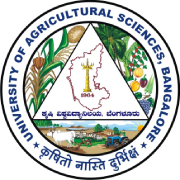VISION
The vision of the University is to lead in transformative agricultural education, research, and extension, nurturing sustainable practices for a resilient future. The main dream is to transform the University into a world-class Farm University by establishing a robust knowledge base through distinctive programs in teaching, translational research and extension initiatives.
MISSION
The mission is to advance agricultural knowledge, innovation, and sustainability in agriculture. The university aims to equip future leaders with the skills and insights necessary to tackle agricultural challenges, promote stewardship, and improve food and nutritional security. Strengthening networking and collaboration with diverse institutions, as envisioned by the university, will enhance its institutional governance capabilities.
OBJECTIVES
Teaching
To make agricultural education responsive to the growing and changing needs of the society in general and aspirations of the farming community in particular.
To establish a dynamic system of agricultural education to train highly skilled and competent manpower to address the challenging tasks with new emerging areas of research, extension and industry.
Research
To develop suitable end-use technologies to solve farmers’ problems vis-à-vis agricultural production including animal husbandry and fisheries and foster research aimed at conceptual advances in all disciplines for technology development in the long run.
To establish state-of-art infrastructure including well-equipped laboratories, extensive farmlands and an operational research management system that will ensure quick, efficient and cost effective implementation of research programmes.
To attract qualified and talented personnel to undertake research in the University.
Extension
To ensure that the research findings and innovations, after their proven demonstration, are communicated to the farmers on a logistically feasible scale. This mechanism acts as an interface between farmers and researchers and enables identification of problems through a positive feed back.
To reach the knowledge and technology to farmers on a wider scale by training the grassroot level workers and officers of the state departments of agriculture, horticulture and sericulture on recent advances in the respective fields through subject matter specialists






